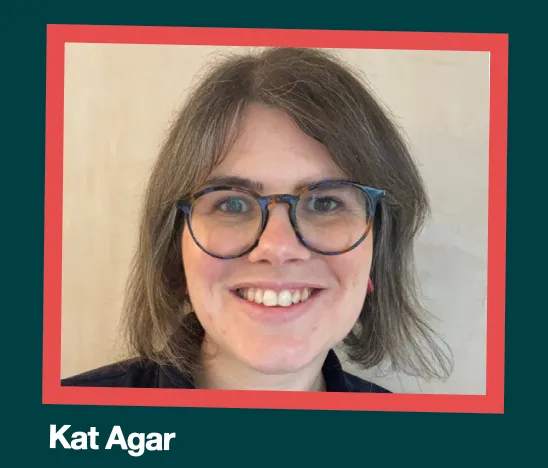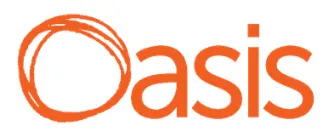
Last year, Home Secretary Yvette Cooper declared Labour’s mission to halve knife crime within a decade. In response, legislation was introduced to ban the possession and sale of zombie-style knives and machetes. Yet, since then, the Metropolitan Police have recorded a 2.7% increase in knife crime. The problem isn’t about access to knives. The problem runs much deeper: it’s about inclusion.
If we truly want to halve knife crime, firstly we must recognise that knife crime is not just about young people. Secondly, we must double down on inclusion and give communities, including young people, purpose and hope. While banning certain types of knives is important, these measures are merely a plaster on a much deeper wound. Young people don’t get involved in knife crime because knives are accessible — they do so because they feel vulnerable, isolated, and hopeless in a society that has failed them.
The solution
At Oasis, the charity whose youth and community work I lead, our mission is to build stronger communities where there is no one left out. We run 54 schools, 23 community hubs, housing projects, youth work, specialist mentoring, and the UK’s first secure school, Oasis Restore. Over four decades, we’ve learned that young people only thrive when all their needs are met in a holistic and integrated way. Not through a patchwork of disconnected policies, but through community.
So, what does it mean to double down on inclusion? It means investing in youth hubs — ecosystems of support that address the full range of young people’s needs: education, mental and physical health, housing, and more, all in a joined-up way.
Last year, Labour announced plans to invest in a network of ‘youth futures’ hubs stretching across the country. That’s why we launched Oasis St Martins Village last year — a youth hub designed to pilot what these centres can be. At Oasis St Martins Village, through our network of partners, we offer free GCSE music tuition, arts education, mentoring, catering, content creation and filmmak-ing, sports and wellbeing programmes, and housing advice — all at no cost to young people or their families.
Youth hubs don’t need to be complicated. Currently Oasis St Martins Village isn’t government-funded, instead, it draws on the resources, expertise, and staff of local charities already active and invested in the local neighbourhood. Together, we’re building a web of support with the local community at its heart.
Earlier this year, Oasis launched the NO ONE LEFT OUT campaign, with three priority areas—one of which is ‘Supporting Young Lives’ which involves piloting three exemplar youth hubs that the government can adopt and scale. Learn more here.
Seb’s story
Youth hubs are about prioritising early intervention — ensuring young people receive support before they fall into the youth justice system.
Take Seb, for example. Just recently, he stood in front of his peers and delivered a powerful talk on knife crime at his school. He spoke with confidence and clarity, holding the room like a seasoned speaker. He’s now doing well in school and has his sights set on learning a trade — perhaps plastering or joinery — once he finishes.
But Seb’s life looked very different just a year ago. At 15, he was referred to an Oasis youth team from a hospital bed after surviving a machete attack that left him with serious injuries to his head and hands. He was known to the police, had gone missing from home multiple times, and was carrying knives. He had been exploited by organised crime groups and was a victim of robbery, assault, and modern slavery. At the time, he was attending an alternative provision based in a gym, deeply traumatised and living in constant fear for his safety.
From that hospital bed, Seb and his mum agreed to meet with an Oasis mentor. Over the following months, he was relocated for his own protection but continued to meet weekly with his mentor. Together, they began to unpack the trauma he had experienced. Slowly, Seb started to build coping strategies, reconnect with education, and imagine a different future for himself. He’s since been able to return home and is beginning to thrive.
It was this preventative, joined-up support — addressing Seb’s physical and mental health, education, relationships, and family life — that helped disrupt the cycle of knife crime and put him onto a new, more hopeful path.
You can’t hurt to heal
Yet, even when young people are caught in the cycle of knife crime and prosecuted, our current youth justice system often perpetuates the problem. The reoffending rate for young people stands at 32.5%. This is a harrowing statistic and reminds us that our current youth justice system is failing.
At Oasis, we believe that young people involved in knife crime are not inherently “bad” or “evil”— they are wounded. Their actions stem from trauma and difficult life circumstances. If we want to really address knife crime, we need a restorative, therapeutic youth justice system that heals wounds rather than punishes and perpetuates harm.
If young people are sent to prison without their underlying wounds being addressed —indeed, sometimes they may even be deepened — why would we expect their behaviour to change upon release? All behaviour is communication. Violent crime communicates that young people need help.
To disrupt the cycle, we must stop asking, “What’s wrong with you?” and start asking, “What’s happened to you?”
That’s the philosophy behind Oasis Restore, the UK’s first secure school that we launched last year. Here, we care for young people convicted of serious violent crimes. Many of our students score extremely high on the Adverse Childhood Experiences scale. At Oasis Restore, we offer a full curriculum, refer to our young people as students — not inmates —have no bars on the windows, and provide enriching learning experiences. It’s still a secure environment. Students can’t leave. But their wounds are met with therapy and compassion, not punishment and condemnation.
An Investment, Not a Cost
As Oasis founder, Steve Chalke, said in his most recent book, “You can judge the wisdom of any society by the investment it makes in its children.”
We need to invest in youth hubs, pulling together local resources to provide the holistic, joined-up care our young people need to thrive. We must help our young people find purpose and hope — so they don’t fall into despair and violence, two of the conditions in which knife crime thrives. We need to invest in local communities – local young people – so that there is no one left out.

Kat Agar, CEO of Oasis Community Partnerships
www.oasisuk.org
Oasis works nationally and in local neighbourhoods to build stronger communities where there is no one left out. For 40 years our innovative education, housing, youth, and community work has promoted inclusion, built opportunity, and created a movement to bring about social change.
